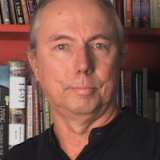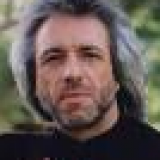It Don’t Mean A Thing If It Ain’t Got that Swing
by Robert Rabbin
“What we have received is the ordinary mail of the otherworld, wholly common, not postmarked divine”–Les Murray, Australian poet
A friend sent me a letter written by Barbara Denempont, executive director and board member of the Gangaji and Leela Foundations, in which she writes:
“It is possible that you have already heard about a heartbreaking disclosure within our community. On Sunday, October 1, 2006, Eli Jaxon-Bear, founder of the Leela Foundation and Leela School as well as Gangaji’s husband and partner, revealed to the entire Board of Directors that he breached the sanctity of the teacher/student relationship by initiating an intimate relationship with one of his students, who is also a teacher in the Leela School. This relationship lasted for three years. Eli told Gangaji about the relationship in October 2005. At the student’s request, neither Gangaji nor Eli disclosed the relationship.” Later in the same letter, Barbara writes, “Eli takes full responsibility for his actions and the harm he has caused. In response, he is willingly stepping down from teaching immediately.”
In an article written for the Ashland Daily Tidings, 14 October 2006, Robert Plain quotes Eli as saying, “A lot of people are upset with me. I’m human. I make mistakes. This has been hugely humiliating, but I am willing to stand and face that. I feel like this itself is a teaching for people. It’s a great test for everyone to see what is true within their own hearts. My prayer is that people don’t discard the teaching because of the flaws of the teacher.”
The “sanctity of the teacher/student relationship” is tricky business, and I don’t want to take up the complexity of that notion here. It does seem odd, however, that, as stated by Barbara, “What was initially seen as a matter between adults is now recognized to be a betrayal of the teacher/student relationship and an abuse of power.” I wonder what happened in people’s minds between “initially” and “now.” I wonder if Barbara and the other board members who approved her letter have really taken full responsibility for their perceptions, projections, fears, doubts, choices, and actions. I also wonder about the characterization “heartbreaking disclosure.” For whom is it heartbreaking, and is this true? Barbara does not appear to apply the famous satsang ju-jitsu move, “Who is it that is heartbroken?” I wonder if the people have failed the teachings, or if the teachings have failed the people.
I don’t think Eli is flawed, and I don’t think he should stop teaching. In fact, I believe only now is he qualified to teach, now that Toto has shown us the man behind the curtain. If there is a flaw, it is in the teaching.
What is the teaching? Perhaps the teaching is pointed to in this statement made by Eli in response to the question, Who are we?:
“Silent, empty, conscious, intelligent love.” (John Darling, Mail Tribune, 31 December 2004)
The flaw in the teaching is that “silent, empty, conscious, intelligent love” is not the whole story of who we are. The whole story is quite huge, and we would do well to remember Rumi’s comment, “However you think it is, it’s different than that.”
Any teaching that is based on a transcendent ideal at the expense of our human beingness is flawed. We turn towards meditation, self-inquiry, and inner exploration to find our innate connection with the universe, with the all that is. We enter silence in order to reawaken our conscious feeling for the enormous endlessness of who we are, to set free our exhilaration for life, to initiate ourselves into the mystery and magic of creation. But the enormous endlessness of who we are is anchored in our humanity and in our life on this Earth, in full relationship to every detail and aspect of daily life.
The transcendent ideal of spiritual attainment is flawed. It is an incomplete, distorted picture of who we are. Ramana Maharshi, from whom Eli and Gangaji claim spiritual descent via their guru Papaji, did not go far enough on his journey of self-discovery. He only went away; he didn’t come back. And we, in our hunger for truth, peace, and meaning, have come to mistake going away as the ideal. Ramana Maharshi needed to come back into a full, robust, sensual, sexual, passionate embodiment of that silence. We should not make his mistake. Silence does not neutralize our life and living, it animates them. We should stop impersonating an ideal that is flawed. The archetype of sage as aloof witness to the world is an old, tired one, as cumbersome and ineffective as the typewriter compared to a new Apple Powerbook. I would be more interested in what the Buddha might have said had he returned to the palace and become king. He, too, went away; and he, too, didn’t come back.
I don’t know why we have traded away our human beingness for transcendent ideals. Perhaps its because, like any form of fundamentalism, it creates a false sense of security and certainty. We love the idea that we are emptiness, or silence, or pure consciousness. We are these things, but not exclusively. We are also a teaspoonful of DNA, but not exclusively. We are this body/mind, but not exclusively. We are all of it, aren’t we? That’s the hard part: to integrate enormous endlessness with our daily life. If the teaching is to be full, the teaching must exist within the context of our lives, as we live them. If we are going to ascend, then let us remember to descend. If we are going to travel to otherworldly realms, let’s not forget to come back to the kitchen where we eat.
Barbara continues, “The Board intends to create a Foundation code of ethics, or similar document, to address the teacher and student relationship, as well as other pertinent issues.” Why is this necessary? It seems to be another way in which people can avoid life, trading personal responsibility and the thrill of spontaneity for rigidity and fear of self. If we live out in the open, moment by moment, and if we are unafraid to ask direct, personal questions about how our teachers live, why is a “code of ethics, or similar document” necessary? Why do we need to regulate behavior, banishing our impulses to our individual and collective shadow-bags? Once the document dealing with pertinent issues is created, can we then peacefully, blissfully, and blindly go back to asking Who am I?
Who am I? is only half the question; the other half is How shall I live?
Who am I? and How shall I live? is the full, challenging, and redeeming spiritual question which we would do well to take up with our whole heart, without looking away, without trying to escape or oversimplify the often untidy totality of our life.
How shall I live? can not be swept under the carpet with spiritual ideals of transcendence. We can not live as pure consciousness except in this body, in this world, with each other. We need to look honestly and openly at how we actually live, taking the whole thing into our enormous endlessness: body, mind, emotions, relationships, money, sex, power, desires, health, work, fantasies, imagination, intellect. And there’s more that we need to include in our living: conscious lifestyle choices and participation in the social, political, and environmental issues of our times.
I do not think Eli is flawed, and I do not think he should stop teaching. I only wonder why he did not live openly from the beginning? Three years is a long time to be secretive about how one is actually living. If we want our spiritual teachers to be sexless, that is our problem. If we want our spiritual teachers to be above it all, that is our problem, too. If we want our spiritual teachers to look and sound remote and different from us, that is our problem. What exactly are we trying to be above? What are we trying to escape? Why are we so afraid of our lives as we live them? Eli’s humanity is not the flaw; the flaw is a teaching that forces us to live in shadows and carry secrets.
Really, it’s time to grow up and stop playing dress-up-like-some-old-Indian-guy. Let’s stop hanging giant pictures over our giant chairs, pretending to meditate on the Self when we are just medicating the self. Let’s stop giving our power to the Wizard of Oz, creating the very source of our disempowerment, disappointment, and disillusionment with our own projected power. Let’s have the courage and originality to invent our own lives, according to our own natures (both with a small and capital “s”) and deep desires, our passions and artistic tsunamis, our concern and caring for the things of this world where we live.
Everyone alive has to deal with emotions, money, relationships, desire, doubt, fear, insecurity, paradox, heartbreak – the whole lot of it. If they say they don’t, they are lying, or they are living a tiny life surrounded by Tin Men and Cowardly Lions.
The great jazz pianist/composer Duke Ellington, wrote:
It don’t mean a thing, if it ain’t got that swing
There’s something else that makes this song complete
The song that makes our life as enormous endlessness complete is our human beingness, our embodiment, our actual living and loving. I suggest we get real, not ideal, in our satsangs. I suggest we stop impersonating “realized” beings who themselves only went away. That is not a big deal. The bigger deal is coming back. Will we do that?
© 2006/Robert Rabbin/All Rights Reserved
Robert Rabbin is a pioneer in executive/life coaching, a keynote speaker, leadership/communication consultant, teacher, and author of five books and more than 250 articles. He is the originator of “Presencing,” a holistic style of public speaking and communicating based on the integrity, transparency, and clarity of the speaker. For contact and further information, please visit www.robertrabbin.com and www.presencing.com.au.






